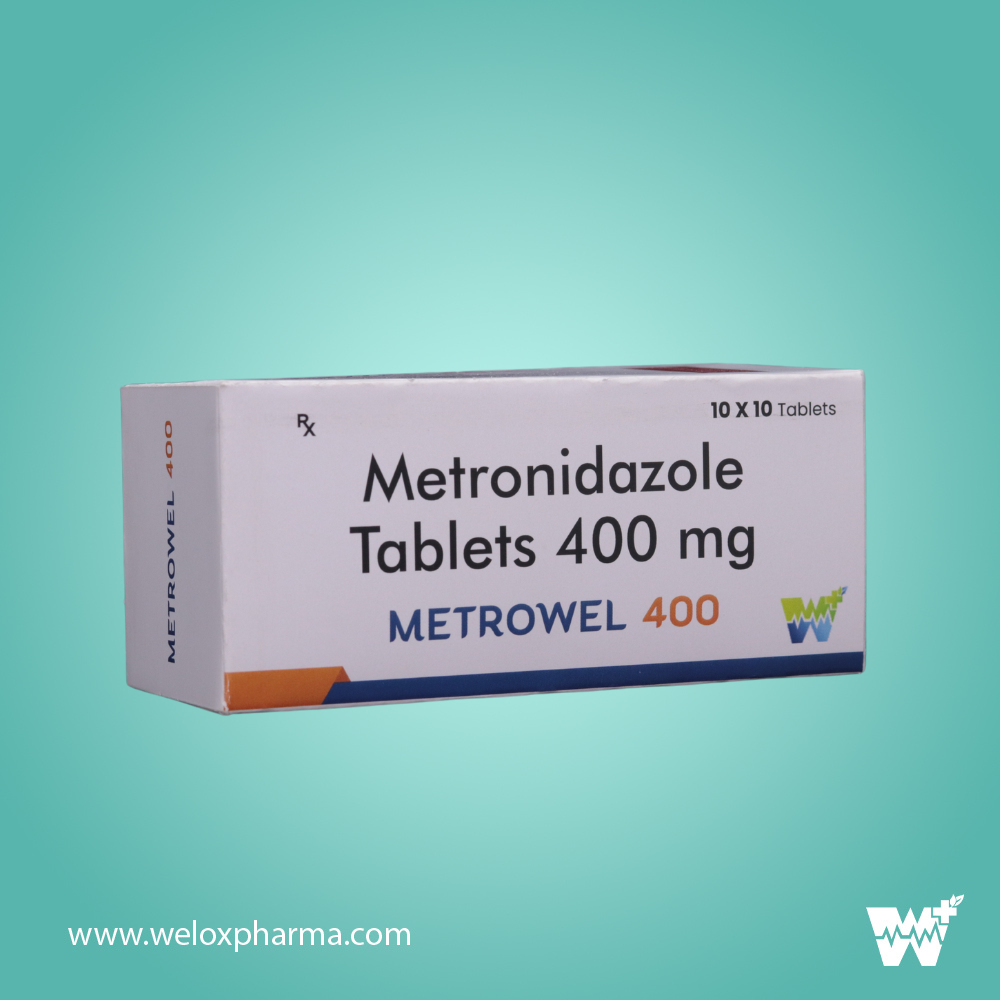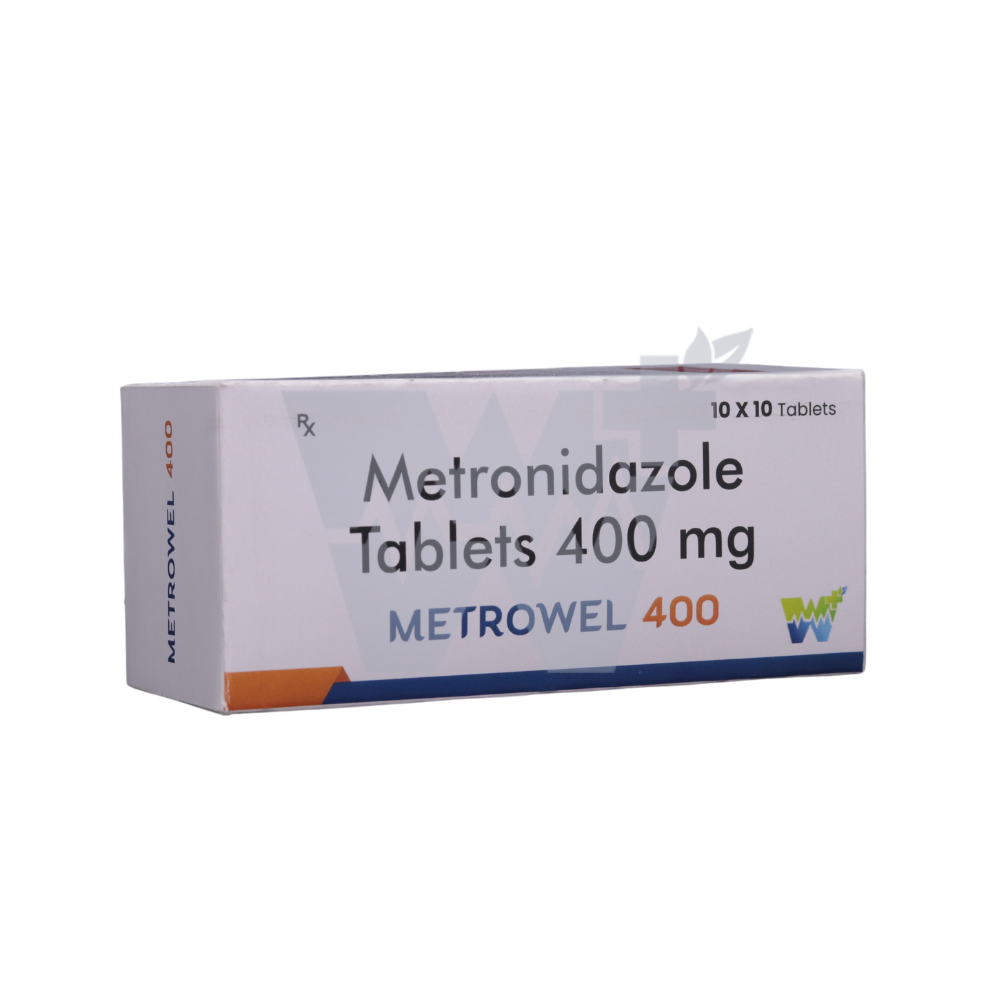



Introduction to Metrowel
Metrowel contains Metronidazole 400 mg, a broad-spectrum antibiotic and antiprotozoal agent. It is commonly used to treat a variety of anaerobic bacterial infections and parasitic infections. Metrowel is effective against several microorganisms, including protozoa and anaerobic bacteria, and works by disrupting the DNA synthesis of these pathogens. This prevents their replication, leading to the eradication of the infection. Metrowel is widely used in the treatment of abdominal infections, vaginal infections, and gastrointestinal infections, offering reliable and fast-acting results.
Uses of Metrowel
Metrowel is indicated for:
Anaerobic Bacterial Infections (e.g., bacterial vaginosis, intra-abdominal infections)
Protozoal Infections (e.g., Giardiasis, Amoebiasis, Trichomoniasis)
Pelvic Inflammatory Disease (PID)
Helicobacter pylori Eradication (in combination therapy)
Skin Infections caused by anaerobes
Benefits of Metrowel
Effective against a Wide Range of Bacterial and Parasitic Infections
Rapid Action for Symptom Relief
Well-Tolerated with Minimal Side Effects
Treats both Localized and Systemic Infections
Promotes Recovery in Gastrointestinal and Abdominal Infections
Can be used for Combination Therapy (e.g., with antibiotics for H. pylori eradication)
Mechanism of Action of Metrowel
Metronidazole works by entering the bacterial or protozoal cell and disrupting its DNA. This results in the inhibition of DNA replication, preventing the microorganism from multiplying. As the pathogen's ability to reproduce is impaired, it ultimately leads to the death of the microorganism, providing effective treatment for infections. The drug’s ability to target anaerobic organisms makes it highly effective for treating infections that occur in low-oxygen environments, such as in the gut, vagina, and abdomen.